Advanced electromyography testing that pinpoints exactly what’s causing your muscle weakness, numbness, or tingling symptoms.
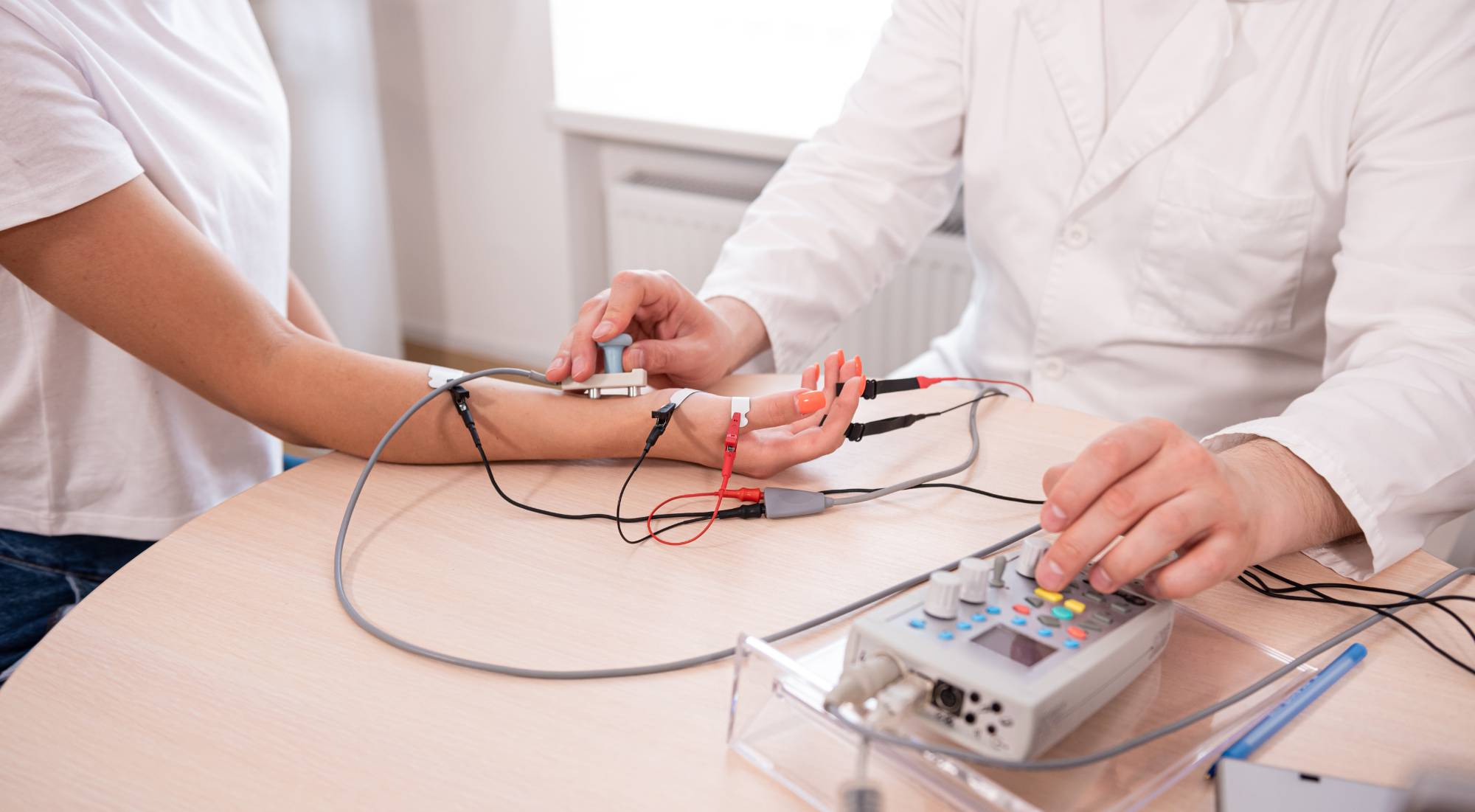
Reviews
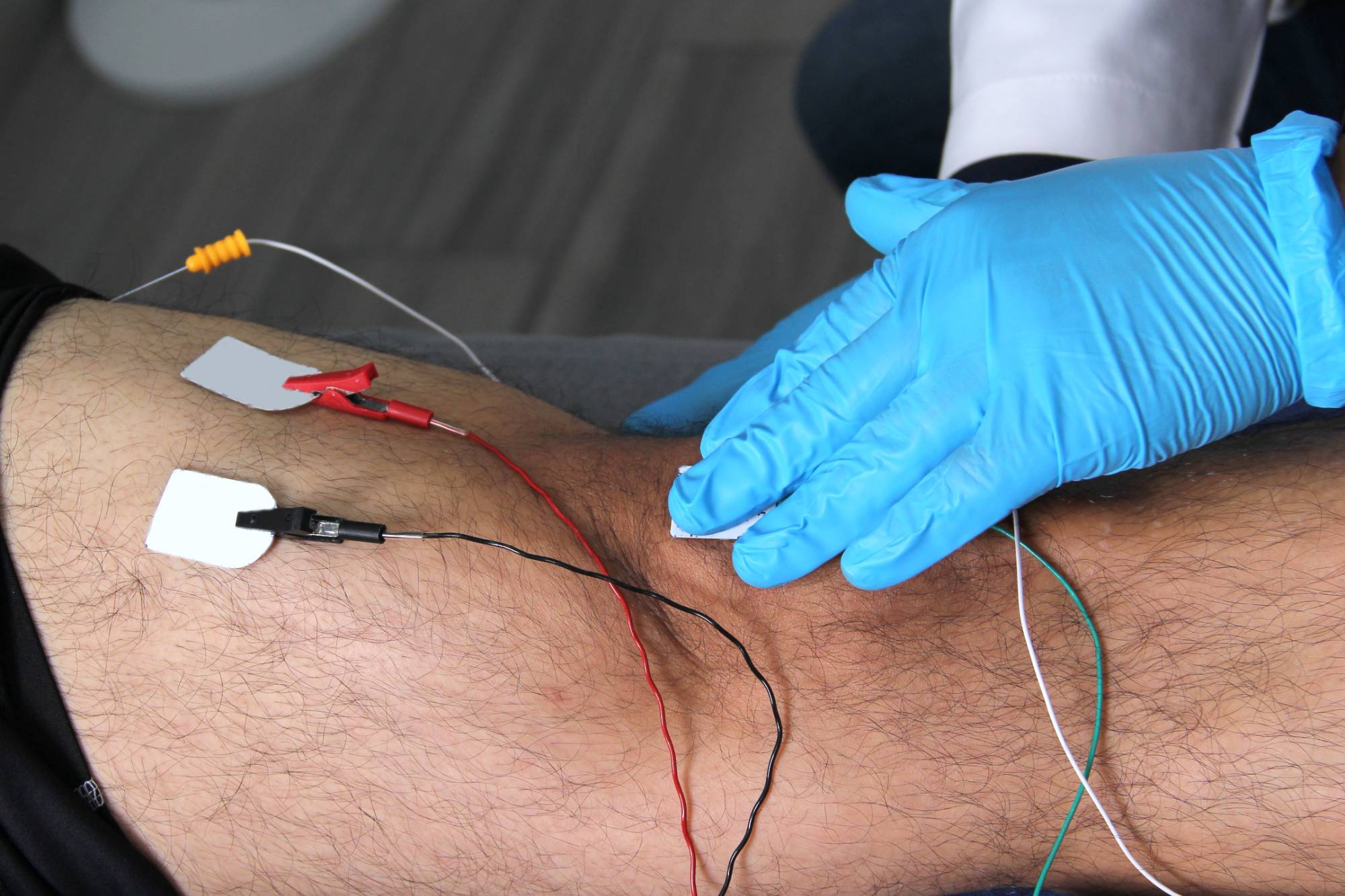
You’ve been dealing with unexplained muscle weakness, persistent numbness, or that frustrating tingling that won’t go away. The uncertainty is almost worse than the symptoms themselves.
EMG testing gives you concrete answers. This diagnostic procedure measures the electrical activity in your muscles and nerves, revealing exactly where the problem lies and how severe it is.
Instead of guessing about carpal tunnel syndrome, sciatica, or peripheral neuropathy, you’ll know for certain what you’re dealing with. That clarity changes everything about your treatment options and your peace of mind.
We have been providing comprehensive diagnostic testing to Clark, NJ residents for years. Our team specializes in electromyography and nerve conduction studies, using advanced equipment to ensure accurate results.
What sets our practice apart is our commitment to clear communication. You won’t leave confused about your test results or wondering what happens next.
Our physicians are board-certified specialists who understand that getting an EMG test can feel overwhelming. We take time to explain the process, interpret your results in plain language, and discuss realistic treatment options based on your specific findings.
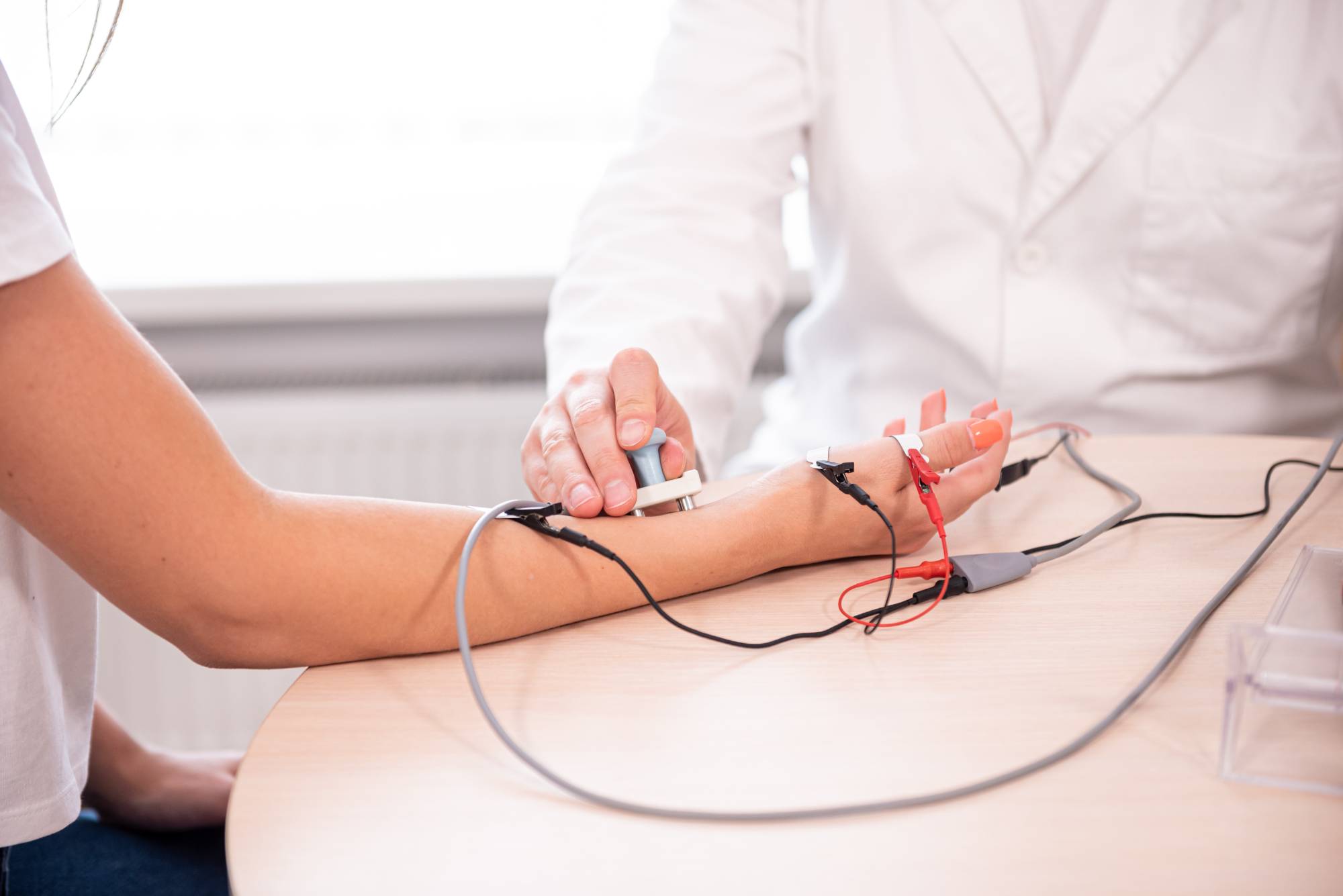
Your EMG testing appointment typically takes 30-60 minutes and combines two complementary tests. The nerve conduction study comes first, where small electrical pulses measure how well your nerves transmit signals.
Next is the electromyography portion, which uses thin needle electrodes to measure muscle electrical activity. You’ll contract specific muscles while the equipment records the signals, revealing whether the problem is in your nerves, muscles, or both.
Most patients find the discomfort minimal and temporary. Our physician explains each step as it happens, so you know exactly what to expect. Results are available immediately, and you’ll receive a thorough explanation of what the findings mean for your specific situation and treatment options.
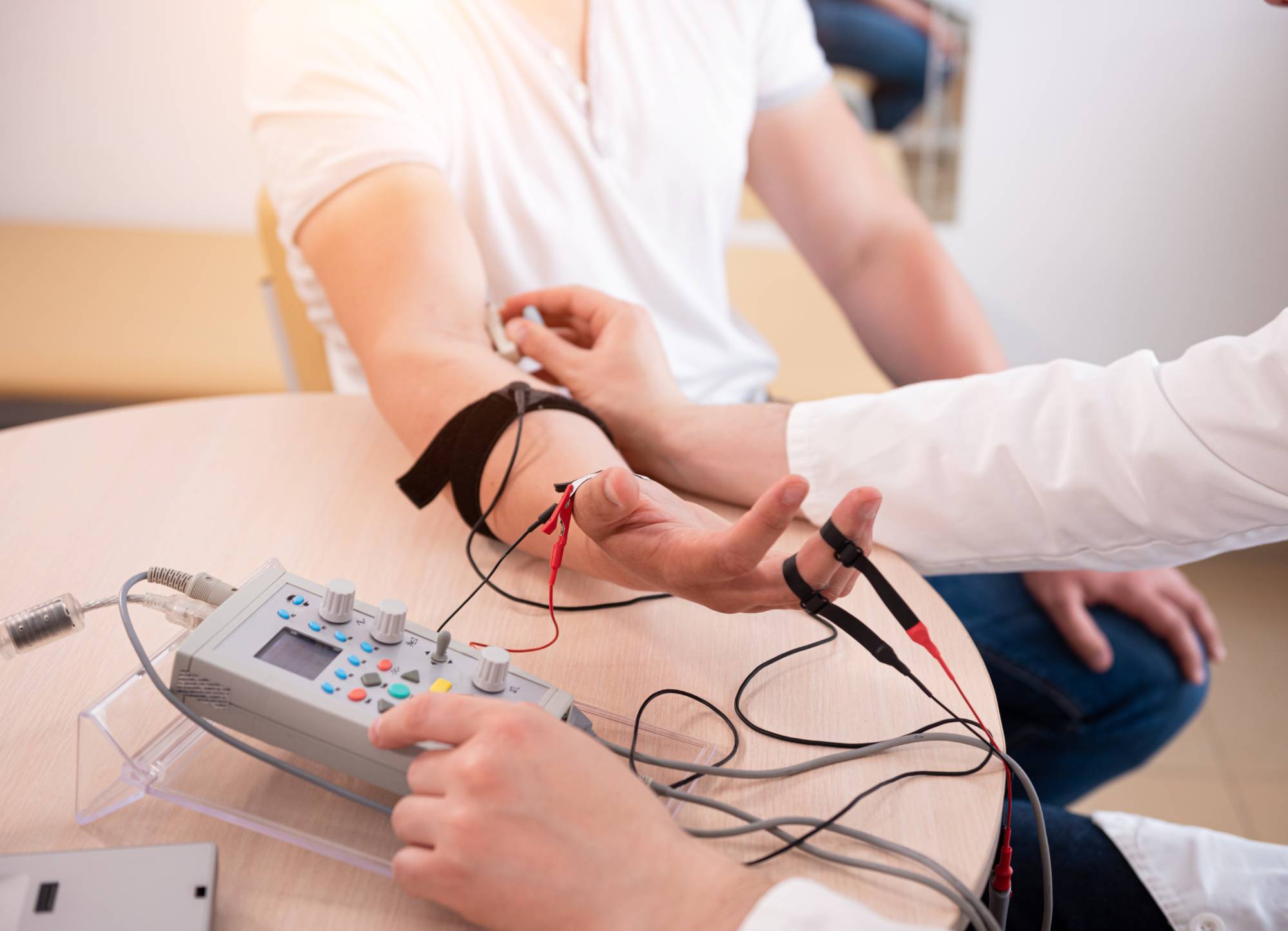
Ready to get started?
Your EMG testing includes both nerve conduction studies and electromyography in a single appointment. This comprehensive approach provides a complete picture of your nerve and muscle function, whether you’re dealing with suspected carpal tunnel syndrome, radiculopathy, or unexplained muscle weakness.
The testing can diagnose conditions like peripheral neuropathy, pinched nerves, muscle disorders, and nerve damage from injury or disease. Each test is tailored to your specific symptoms and the areas of concern your physician identified during your consultation.
You’ll receive detailed results interpretation, written documentation for your records, and clear recommendations for next steps. If treatment is needed, our team coordinates your care to ensure seamless transition from diagnosis to effective treatment planning.
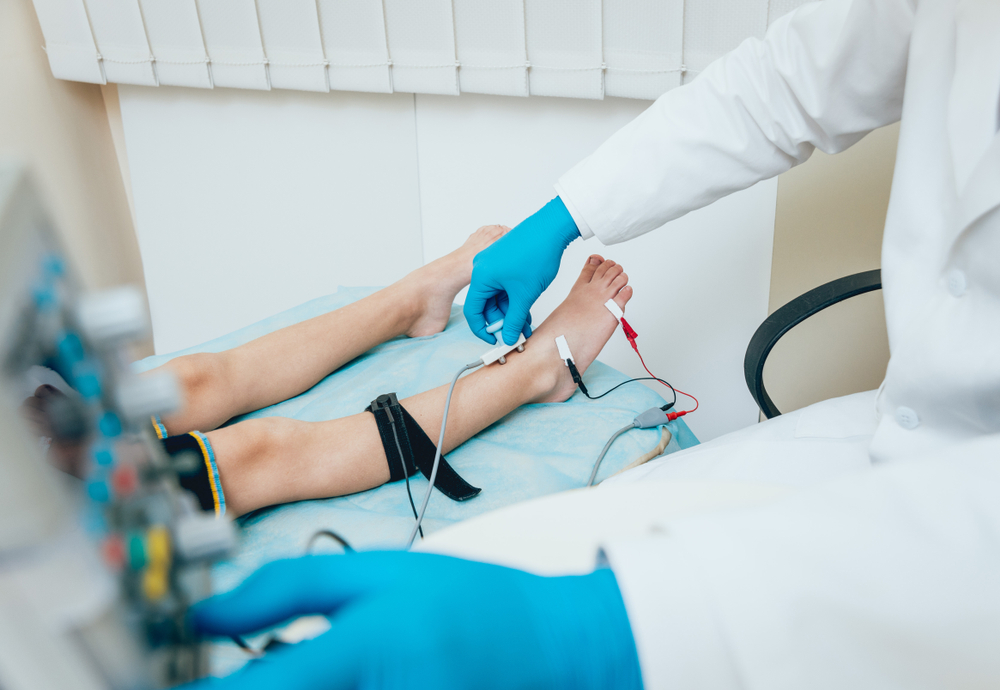
New York:
Florida:
Support